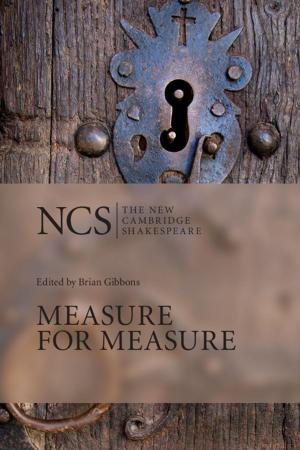Everyday Words and the Character of Prose in Nineteenth-Century Britain
Fiction & Literature, Literary Theory & Criticism, British| Author: | Jonathan Farina | ISBN: | 9781316856819 |
| Publisher: | Cambridge University Press | Publication: | September 14, 2017 |
| Imprint: | Cambridge University Press | Language: | English |
| Author: | Jonathan Farina |
| ISBN: | 9781316856819 |
| Publisher: | Cambridge University Press |
| Publication: | September 14, 2017 |
| Imprint: | Cambridge University Press |
| Language: | English |
Everyday Words is an original and innovative study of the stylistic tics of canonical novelists including Austen, Dickens, Trollope, Thackeray and Eliot. Jonathan Farina shows how ordinary locutions such as 'a decided turn', 'as if' and 'that sort of thing' condense nineteenth-century manners, tacit aesthetics and assumptions about what counts as knowledge. Writers recognized these recurrent 'everyday words' as signatures of 'character'. Attending to them reveals how many of the fundamental forms of characterizing fictional characters also turn out to be forms of characterizing objects, natural phenomena and inanimate, abstract things, such as physical laws, the economy and legal practice. Ultimately, this book revises what 'character' meant to nineteenth-century Britons by respecting the overlapping, transdisciplinary connotations of the category.
Everyday Words is an original and innovative study of the stylistic tics of canonical novelists including Austen, Dickens, Trollope, Thackeray and Eliot. Jonathan Farina shows how ordinary locutions such as 'a decided turn', 'as if' and 'that sort of thing' condense nineteenth-century manners, tacit aesthetics and assumptions about what counts as knowledge. Writers recognized these recurrent 'everyday words' as signatures of 'character'. Attending to them reveals how many of the fundamental forms of characterizing fictional characters also turn out to be forms of characterizing objects, natural phenomena and inanimate, abstract things, such as physical laws, the economy and legal practice. Ultimately, this book revises what 'character' meant to nineteenth-century Britons by respecting the overlapping, transdisciplinary connotations of the category.















